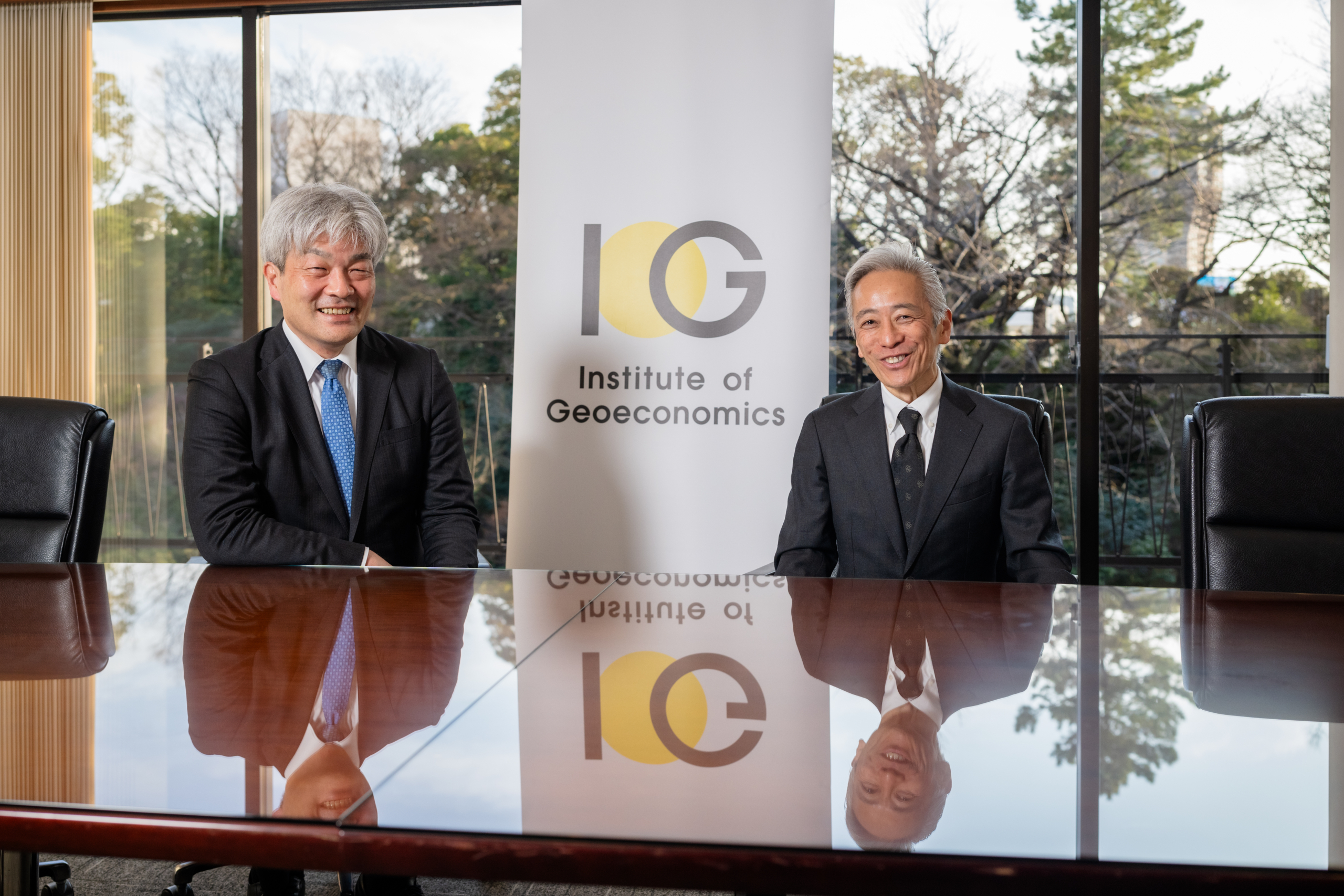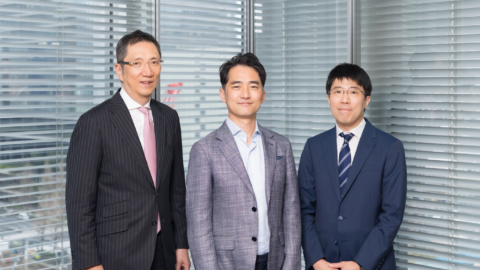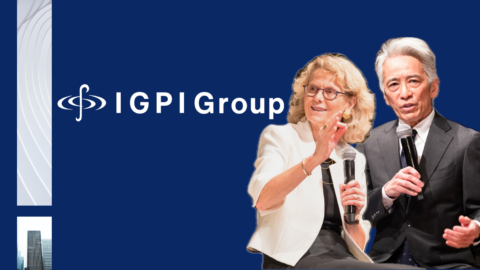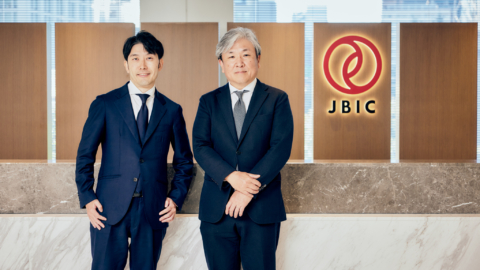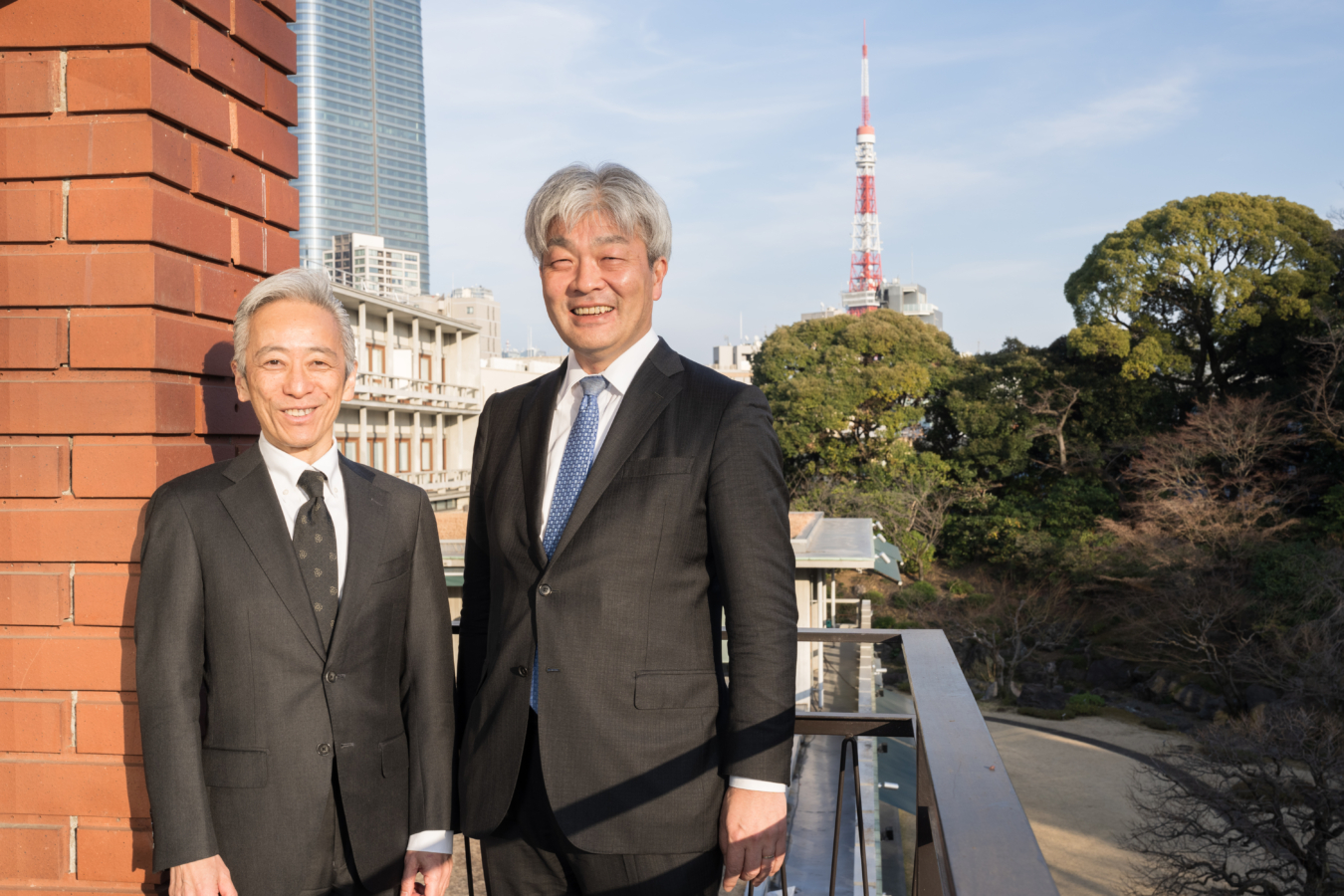
What can Japanese companies do to increase sensitivity towards geoeconomic risk?
As the international balance of power becomes increasingly complex, companies must now be conscious of the “geoeconomics” – the intersection of geopolitics and economics. We welcomed Prof. Kazuto Suzuki, Director of the Institute of Geoeconomics, International House of Japan and Member of IGPI’s Advisory Board, to speak with Takashi Muraoka, CEO of IGPI, on how to prepare for the geoeconomic risks.
A place for politics, government, and business to discuss economic security
Takashi Muraoka Back in early summer of 2022, when I first heard about the establishment of the Institute of Geoeconomics, I immediately decided that IGPI would be actively involved. When we had a project related to China in the past, I felt that in order to work with China, we cannot neglect the trends within the U.S. However, despite our efforts to keep a close watch on the trends, it is impossible to gather enough information in terms of both quantity and quality while remaining in Japan. In addition, the world is becoming increasingly multipolar with the rise of the Global South in recent years. Given that this year is said to be the year of elections, geoeconomics has never been more important. Professor Suzuki, could you tell us why you decided to found the Institute of Geoeconomics?
Kazuto Suzuki The direct reason would be the merger of Asia Pacific Initiative (API) and the International House of Japan, but simply taking over the activities of API in international politics and international relations did not seem attractive enough. I wanted to create a novel think tank in Japan for this new era, and that is when I laid focus on geoeconomics.
Throughout its postwar history of over 70 years, Japan has grown accustomed to the free trade system where businesses and investments take place globally. There was a clear division between politics and economics; even if a country had a problematic political relationship, as long as they had economic rationality, companies continued their investments and businesses there.
However, now we see cases where the economy is being used as a means to political ends, or where the state utilizes its power or politics to impact the economy. For example, we have seen China’s ban of rare earth metal exports, the Trump administration imposing additional tariffs, and the Biden administration issuing semiconductor export controls against China. If the nature of national security changes, so will the nature of the economy. We are in need of a strategy that connects geopolitics and the economy. This is one of the reasons why I decided to establish the Institute of Geoeconomics.
TM Postwar Japan only had to follow the U.S.’s steps and stay in line with its politics. However, currently we are seeing a decline in U.S. political, military, and economic power, and many challenges are rising as a result.
KS The changes we are witnessing now are a result not just of the decline of U.S. power, but also the rise of China. The emergence of the Global South reflects the fact that now these countries have the option of depending on China instead of the U.S. Furthermore, the Global South welcomed an influx of surplus funds with low interest rates due to the impact of the Global Financial Crisis, and this seemed to accelerate the world’s multipolarity.
However, now the U.S. is raising interest rates and investors are pulling out funds from the developing countries. The Global South cannot rely on China even if it wants to, as the Chinese economy is also struggling. It is unlikely for the U.S. to return to its hegemony, and there is also no other state that could take on a central leadership role. As every state’s presence declines on a relative basis, I believe there is now a need for Japan to redefine its position.
For a state to build its economic security strategy without causing contradictions or conflicts between corporate and government activities, it is necessary to have a dialogue between politicians, bureaucrats, and businesses. However, no such opportunities exist. This is why we decided to host such dialogues at the Institute of Geoeconomics, where bureaucrats from the Ministry of Foreign Affairs (MoFA), the Ministry of Economy, Trade and Industry (METI) and the Ministry of Defense (MoD), companies, relevant politicians and other stakeholders can gather and discuss. We researchers would then make policy proposals from an independent standpoint.
TM Japanese think tanks have the impression of being passive to research inquiries by companies on a specific theme. However, I understand that the Institute of Geoeconomics aspires to become the “network of knowledge” in the fields of geoeconomics and security. To realize this, wouldn’t it be necessary for more management and individuals in the private sector to proactively take part?
KS That is exactly right. We want them to take part not as clients, but to proactively engage in the three-way dialogue between the politicians, ministries and businesses. While we researchers do not create strategies for the state or companies on our own, we neither take a passive stance. By utilizing our experience gained from the Japanese government and in corporate practice, we would like to contribute to creating a new agenda from a different standpoint, based on our understanding of the logic behind companies and the government. This may seem like a novel challenge and positioning from the perspective of Japanese companies, but this is already common among think tanks in the U.S. and Europe.

Grasp the situation through a diverse, multangular perspective
TM There are two things I found intriguing about the activities of the Institute of Geoeconomics. The first is the unique dissemination of information. When issuing weekly reports to member companies, it concisely communicates each country’s primary information. These sources are not limited to English, but also include those in other European and Asian languages. I see much value in this attempt, as this does not exist in western media. The second is the activities named “Chief Geoeconomics Officer (CGO)”, to educate Japanese companies.
KS It’s an honor to receive such praise. Firstly, with the “Weekend Reader”, we translate and share information from multiple languages such as French, German, Spanish, Korean, and Chinese into Japanese. No one can see the whole picture of international relations through a single country’s view point. It is important to get clarity through various perspectives, and to comprehend in a multangular manner. For example, there are so many questions about the Israeli-Palestinian conflict no matter how much we study in Japan or the U.S. It is only when we access the local media with the local language, and get to know the thoughts of the local people, that we can accurately grasp the whole picture.
As for the CGO training program, this was something that had been planned from the time of the Institute’s establishment. While Japanese companies are highly sensitive towards business risks, they are not always well aware of the geopolitical and geoeconomic risks. However, there could be cases where a Japanese corporate employee is suddenly detained, or business activities are under pressure due to the barring of foreign capital. It would be foolish to expand business activities abroad with an optimistic view that everything would be all right based on no concrete evidence.
In the program, we have attendees do mental exercises on how they would respond to various scenarios. By training them to become CGOs, we hope they would become able to calculate risk, and to incorporate ways to deal with or evade such risks into their management.
TM For natural disasters such as earthquakes, we must make sure to accurately gather information. We must analyze the risk, understand what must be done and formulate a business continuity plan (BCP). Furthermore, we must prepare through training. This third point is crucial, because if we are not prepared to build our organizational capacity, we cannot take the appropriate measures in real life. When the Japan Airlines accident happened at the beginning of the year, the cabin attendants were able to independently evacuate the passengers to safety because they were all trained for such incidents. Preparing for geoeconomic risks may be similar to that of natural disasters.
KS Indeed, but there is also a significant difference between natural disasters and the risks of economic security and geoeconomics. Natural disasters are the most devastating at the time of occurrence, but will settle and then enter the process of recovery. Geoeconomic risks, on the other hand, see no end. In order to respond according to the situation amidst various risks that exist, we need a flexible organizational structure. In addition, it is not enough for just the management to understand the situation. They must share the information with those on the ground, or else they would not be able to take action. This is why, in the CGO training program, we focus on how to think about long-term risks, and how to build a flexible organizational structure to deal with them.

We must not be indifferent towards the Taiwan contingency
TM Our conversation reminds me of how the Japanese somehow assume that wars are short-term. It is common for wars and conflicts to be prolonged, and unfortunately the Japanese as a people lack the perspective to prepare for such long-term risks. For example, the Taiwan contingency reflects how Japanese companies must prepare with a long-term mindset.
KS Exactly. We could think of many different scenarios for the cross-strait relations between China and Taiwan, from maintaining the status quo to reunification through the use of force. However, China’s options became limited after the Taiwanese presidential election in January 2024. China could not influence enough in their favor and overturn Taiwan through cyber attacks and disinformation. It can not take the Hong Kong model of eliminating pro-democracy activists in the name of maintaining the public order. It’s unlikely it would exercise a large-scale invasion of Taiwan. The most likely scenario would be China to impose a maritime blockade and trade restrictions against Taiwan. Japanese companies must keep this in mind and consider how they could operate local factories under a lack of energy and food supplies. How would they respond if a travel restriction was imposed on their expats in Taiwan? In relation to these, if economic sanctions were imposed on China, what will they do with their businesses operating in mainland China?
TM When it comes to the Taiwan contingency, I believe there are very few companies that consider the impact it could have on their businesses in mainland China. I am sure this is difficult for a company to find a solution or act on its own, but are these kinds of topics already being discussed?
KS As this is an imminent problem, we are considering it from various angles. However, what makes it difficult is that China has a much larger impact compared to Taiwan. One thing that can be said about not just Japanese companies but the Japanese society as a whole is that they tend to postpone complicated decision-making. They cannot even decide whether or not to withdraw their operations. On the other hand, western companies resist supporting China even if this could cause financial difficulties, and they are even willing to abandon their operations in China altogether in case of an emergency. Withdrawal is definitely one option. If companies are to continue their operations there, it is important to communicate the reasons, principles, and thought process behind their decision to remain locally, and to gain understanding from their employees and shareholders.
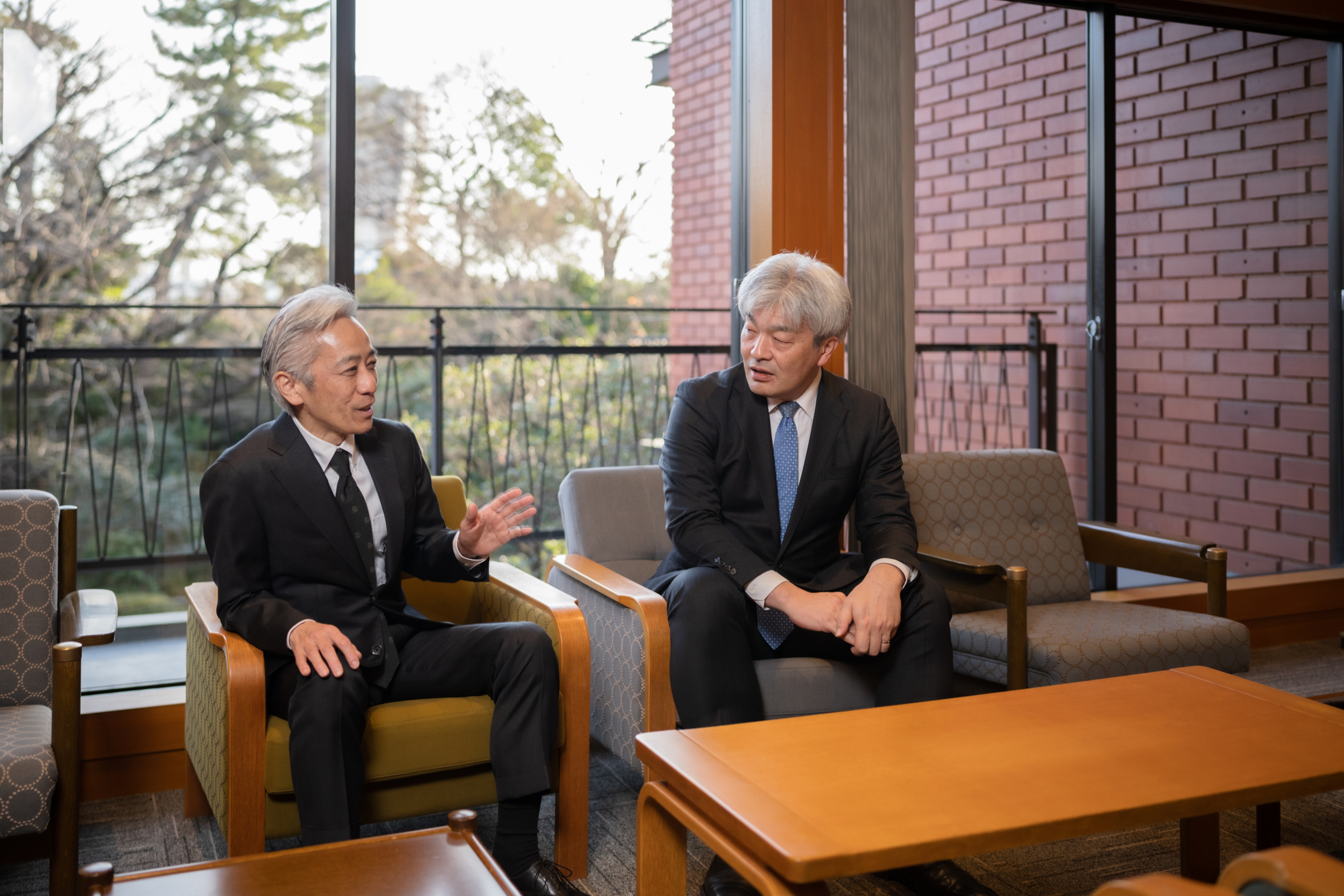
Geoeconomic literacy is necessary for all
TM In recent decades, the presence of Japan as well as the Japanese in international organizations has been declining. One reason is the lack of military power, but it seems that through the angle of geoeconomics, Japan could contribute to the world with its own unique perspective, different from that of the U.S. and China.
KS Even at the Institute of Geoeconomics, we receive a lot of praise from around the world as a Japanese think tank. I believe this shows the growing importance of Japan in the era of geoeconomics.
However, the decline of Japanese presence in international organizations is a different matter. This is due to the lack of expertise within Japanese society. It takes an individual 10 to 15 years in their career within the international organization to reach the top ranks, meaning they must have the expertise. In addition, they have actively contributed to politics, and often hold the status of “former minister” or “former director general”. This is where Japan does poorly. Japan must create an environment where individuals with high expertise can play a significant role in politics and government.
TM Lastly, could you give advice to the younger employees and university students? If you could also talk about your hopes for IGPI, that would be great.
KS When young people join a company, they may learn a lot from their seniors. However, these lessons could become a hindrance in the new era. You do not need to take their words too seriously. Rather, please come up with many new ideas on how to think about risks and ways of doing business in the new era.
In addition, if there is a risk, there is always an opportunity. The U.S. introduced a bill to ban Chinese products such as Huawei from its 5G networks, but this does not mean they will quit using 5G. With the removal, there will be more room. In issues pertaining to economic security and geoeconomics, there will always be new supply chains and gaps in the market, so please find those opportunities. Also, please build your own area of expertise, as expertise will be crucial in this new era.
As for IGPI, we are grateful for your help in both our research and management. IGPI can provide us with two different perspectives, one in investment and the other in business management, so please continue to give us your candid feedback.
TM Since its foundation, IGPI has aspired to become an organization that provides the world with a “network of knowledge” in management and economics, derived from our consulting and investment activities. We believe that our raison deter is to contribute to society by advancing capitalism. After hearing about the Institute of Geoeconomics’ own “network of knowledge”, I could not be more intrigued to see what comes next.
Japanese companies can be divided into two groups: the “G-Type” companies that pursue global expansion, and the “L-Type” companies that focus on local activities. While G-Type companies hold interest and awareness towards geoeconomic risks, this is not the case for L-Type companies, where many do not find these risks relevant to themselves. As IGPI Group is often involved with L-Type companies, we hope to help shift their mindset. As a prerequisite for this, however, each IGPI member must raise their own awareness towards geoeconomics, and to play the CGO role in their projects and investment activities on a day-to-day basis. I look forward to further collaborating with the Institute of Geoeconomics.
